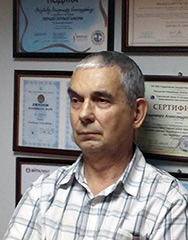Cybercrime as a threat to economic safety

Internet cyber criminals keep perfecting their fraud methods, leading to material losses up to tens of billion dollars and posing serious risks to many countries, including Ukraine.
Therefore, specialized departments and structures are created to combat this type of crime. They constantly get more and more powers and better technical facilities. One of the recent examples is European center of Cybercrime Prevention that commenced its work in the beginning of 2013.
On March 19, Europol released a report “The EU Serious and Organized Crime Threat Assessment (SOCTA) 2013”) with an assessment of the growing globalized and organized crime rates by means of the Internet [1].
Unfortunately, Ukraine has ranked the 4th (following Russia, Taiwan, Germany) among the world countries presenting the highest cyber threats. This data was shown on the map of countries – cyberattacks sources, visualized in the report of Deutsche Telekom, a leading German operator.
As a response to the difficult criminal situation in the Internet area, MIA of Ukraine has prepared a draft law “On cyber safety of Ukraine”, handling hacker attacks of government websites and promotion of pornography, violence and separatism as a threat to national security [2].
The crime connected with the use of computer technologies presents a broader problem, which is at first conditioned by the time, precisely by the people’s ability to engage electronics and computer technologies.
Just as there was a period of transport development and implementation into the everyday life, which required the protection of the process participants, similar period we face nowadays. If upon introduction of computer technologies there was no strictly regulating legal framework as a man had not then imagined where his invention would find its implementation, and therefore there was no defined circle of the process participants and no rhetorical question of legal protection of their interests, presently the inventions in computer technologies affect and involve more and more participants. Hence, the necessity of detailed and thorough regulation of this area of human achievements follows [3].
Since the beginning of 2013, MIA’s department of cybercrime prevention has detected 23 cases of illegal debiting from accounts of commercial enterprises amounting to 12.5 billion of hryvnas, 9.2 billion of which were successfully recovered. Financial frauds are gradually moving from open market to global network. The number of fraudulent payment cards, which could be accessed by criminals in the trading centers, is reducing in Ukraine. At the same time the crime rate, related to the Internet and “Client-bank” system, has boosted, and this trend continues.
It should be noted that now a new spheres and culture prompted by the progress has appeared, the pushing force for which was a human’s laziness. The existing world of computer technologies offers great opportunities, it enables to communicate, search and save information, shop online and pay by electronic means, work and get remuneration. Thus, today a human is also able to lead a full and productive life in cyberspace.
However, it is not just a mass computer distribution that forms information sphere. A significant, even a key role in this process belongs to various constantly – improving computer technologies.
This way, the advancement of information technologies, growing production of supporting technical facilities and their application along with the development of electronic payment methods as a potential object of criminal offence and increasing availability of such facilities are the natural cause of uprise, existence and growth of property offence using computer technologies [4].
The independent poll undertaken by the Centre of cybercrime investigation among 100 people actively using the Internet for more than one year, shopping and paying online (using bank cards, e-wallets) showed the following results: a) 87% of respondents have suffered from criminal offences involving computer technologies, b) 2% of respondents have realized the property loss during the first hours, c) 5% of respondents have realized the property loss during the first month, and d) 93% of respondents have realized the property loss after the first month.
Social danger of such crimes lies in their latency time, which in turn rises from the fact that the person often has no idea that he/she had become a victim of a crime. As the result the criminal feels his impunity and therefore above the society and law.
High social danger of Internet crime mainly results from the increasing role of system of social relations, which are under its threat, and from its transnational and organized character. [5]. Not a single country can actively oppose this malice alone. Because of this, the intensification of international cooperation becomes of high necessity.
Under the new realities of fast Ukrainian entry to the single information space, it becomes necessary systematically and successively to counteract the cybercrime overall and most popular types, and to minimize the harm to the economy. It is important to develop effective measures of Internet crime combat and prevention, improve legal system of information security, including cyber safety.
1. The EU Serious and Organized Crime Threat Assessment (SOCTA), 2013 // https://www.europol.europa.eu/content/eu-serious-and-organised-crime-threat-assessment-socta
2. A draft law of Ukraine amending Law of Ukraine “On the basis of national security” on cyber safety. – CMU, 03.03.2013.
3. Golubev V.А., Gavlovskiy V.D., Tzymbalyuk V.S., Kharberyush I. F. Problems of crime prevention in computer technologies. – Donetsk, 2008. – P.73-80.
4. Roman Idov “Peculiarities of information security in Ukraine”, // http://www.crime-research.ru/interviews/incidents22/
5. Maksim Litvinov “To limit anonymity in the net does not mean to oppress liberty of speech”, // http://www.crime-research.ru/interviews/maxim27/
6. Darlington Mwendabai “Cyber crime: threat to economies”?, // http://www.daily-mail.co.zm/?p=5209
Comments close